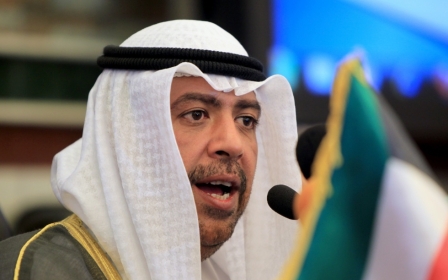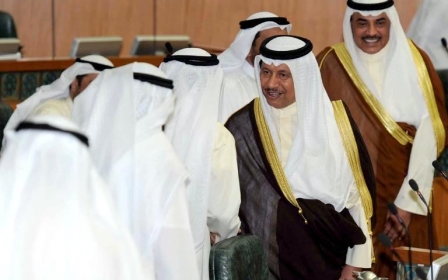Kuwait Central Bank warns over government spending

Rising government spending in Kuwait is harming economic development and the private sector should take on a greater burden of providing public services, according to the country’s central bank governor.
“It is necessary to act actively to push forward comprehensive economic reforms through a bundle of policies, which will contribute to improving the economic environment and boosting efficiency of the government’s performance” Mohammad al-Hashel, governor of the Central Bank of Kuwait, said in an annual press conference on Sunday.
Reliance on oil revenues is “hampering sustainable economic development”, according to Hashel. He added that the private sector should play a greater role in providing utilities including electricity and water, while calling for the government to implement a “sophisticated tax system that will boost the general budget”.
Hashel took over as governor of the Central Bank in 2012 after his predecessor, Sheikh Salem Abdulaziz al-Sabah, resigned after 25 years in the job in protest over what he viewed as wasteful spending by the government.
Kuwait is the 17th richest country per capita in the world, according to the International Monetary Fund (IMF), and funds heavily subsidised petrol and utilities to its population of 3.8 million people who are not charged income tax.
New MEE newsletter: Jerusalem Dispatch
Sign up to get the latest insights and analysis on Israel-Palestine, alongside Turkey Unpacked and other MEE newsletters
The IMF warned last December that the government could face a budget deficit as soon as 2017 if the economy is not diversified and expensive subsidies not reviewed. The government began a review of subsidies last year and the finance minister has reported that its findings will be published in the coming months.
The IMF has cautioned against high governmnet spending in a number of the Gulf States, who all provide generous subsidy systems to their citizens, and analysts say this is a key area that must be addressed for future stability.
"The issue of rising state spending is one of critical importance to the long-term sustainability of Kuwait and other Gulf countries. Officials need to find ways of targeting subsidies more effectively and establishing a program of incremental reform that gradually strips away at subsidy regimes." Kristian Coates-Ulrichsen, research fellow at the Baker Institute of Rice University, told Middle East Eye on Tuesday.
Central Bank governor Hashel said “chronic” economic challenges facing the government stemmed from “a failure to comply with disclosure, transparency and governance, in addition to political disputes”.
Political disputes have plagued Kuwait and the country was rocked by a video leaked last week in which former government officials were said to be plotting a coup against the al-Sabah royal family, who have ruled the country for more than 250 years. Local newspapers Al-Watan and Alam Al-Youm were shut down by a court ruling on Sunday after they broke a government ordered news blackout on discussing the tape.
Mass political protests took place during 2011 and 2012 when demonstrators called for the public to be able to elect all its political representatives and which led to the Emir-appointed prime minister, Nasser Mohammed Al-Ahmed Al-Sabah, resigning.
Although there has been relative calm since opposition-boycotted parliamentary elections were won by pro-government candidates last July, a coalition of opposition groups released a statement last week calling for more political reforms and a fully elected government.
Middle East Eye delivers independent and unrivalled coverage and analysis of the Middle East, North Africa and beyond. To learn more about republishing this content and the associated fees, please fill out this form. More about MEE can be found here.



